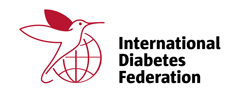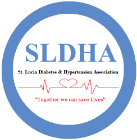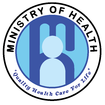Lifestyle changes are important for both treatment and prevention of high blood pressure, and they can be as effective as a drug treatment. These lifestyle changes can also have wider benefits for heart health and overall health.
The lifestyle measures shown to reduce blood pressure and recommended by experts include:
- Salt restriction- typical salt intake is between 9 and 12 g a day and modest blood pressure reductions can be achieved even in people with normal levels by lowering salt to around 5 g a day - the greatest effects are seen in people with hypertension
- Moderation of alcohol consumption- expert guidelines say moving from moderate to excessive drinking is "associated both with raised blood pressure and with an increased risk of stroke"
- High consumption of vegetables and fruits and low-fat- people with, or at risk of, high blood pressure are advised to minimize intake of saturated fat and total fat and to eat whole-grain, high-fibre foods, at least 300 g of fruit and vegetables a day, beans, pulses, and nuts, and omega-3-rich fish twice a week
- Reducing weight and maintaining it- hypertension is closely correlated with excess body weight, and weight reduction is followed by a fall in blood pressure
- Regular physical exercise- guidelines say "hypertensive patients should participate in at least 30 min of moderate-intensity dynamic aerobic exercise (walking, jogging, cycling or swimming) on 5 to 7 days a week"
- Stress reduction- avoiding sources of stress, where possible, and developing healthy coping strategies for managing unavoidable stress can help with blood pressure control, especially as many people turn to alcohol, drugs, smoking and unhealthy foods or overeating to cope with stress.
Smoking can also raise blood pressure, and because of its wider effects on heart health and the rest of the body, giving up smoking is highly recommended for people with high blood pressure.
The DASH diet
The US National Heart Lung and Blood Institute recommends the DASH diet for people with high blood pressure.
Standing for Dietary Approaches to Stop Hypertension, DASH has been specially formulated to help people lower blood pressure. It is a flexible and balanced eating plan based on research studies sponsored by the institute, which says the diet:
- Lowers high blood pressure
- Improves levels of blood lipids (fats in the bloodstream)
- Reduces the risk of developing cardiovascular disease.
There is a National Institute cookbook called Keep the Beat Recipes with cooking ideas to help achieve these results.
There is some evidence that probiotic supplements may be beneficial for people with hypertension. A review of studies found that people taking a multistrain probiotic formula containing at least 10 billion colony-forming units every day for at least 8 weeks had significant decreases in systolic and diastolic blood pressure, with the greatest effects seen in people with hypertension at the beginning of the study.
No significant effects were seen when people took probiotics for less than 8 weeks, however.
Drug treatments for hypertension
Lifestyle measures are standard first-line treatment for hypertension, although doctors will prescribe medication alongside lifestyle measures to lower blood pressure in people with a level above 140 over 90.
Drugs are usually started as monotherapy (just one drug) and at a low dose. Side-effects associated with antihypertensive drugs are usually minor.
A number of different classes of drug are available to help lower blood pressure:
- Diuretics (including thiazides, chlorthalidone and indapamide) - a cornerstone of treatment since 1977
- Beta-blockers(and alpha-blockers)
- Calcium-channel blockers
- Central agonists
- Peripheral adrenergic inhibitors
- Vasodilators
- Angiotensin-converting enzyme (ACE) inhibitors
- Angiotensin receptor blockers.
The choice of drug depends on the individual and any other conditions they may have. While a single drug is usually tried in monotherapy first, a combination of at least two antihypertensive drugs is usually required.
Anyone taking antihypertensive medications should be sure to carefully read labels before taking any over-the-counter medications such as decongestants as these may interact with medications used to lower blood pressure.




